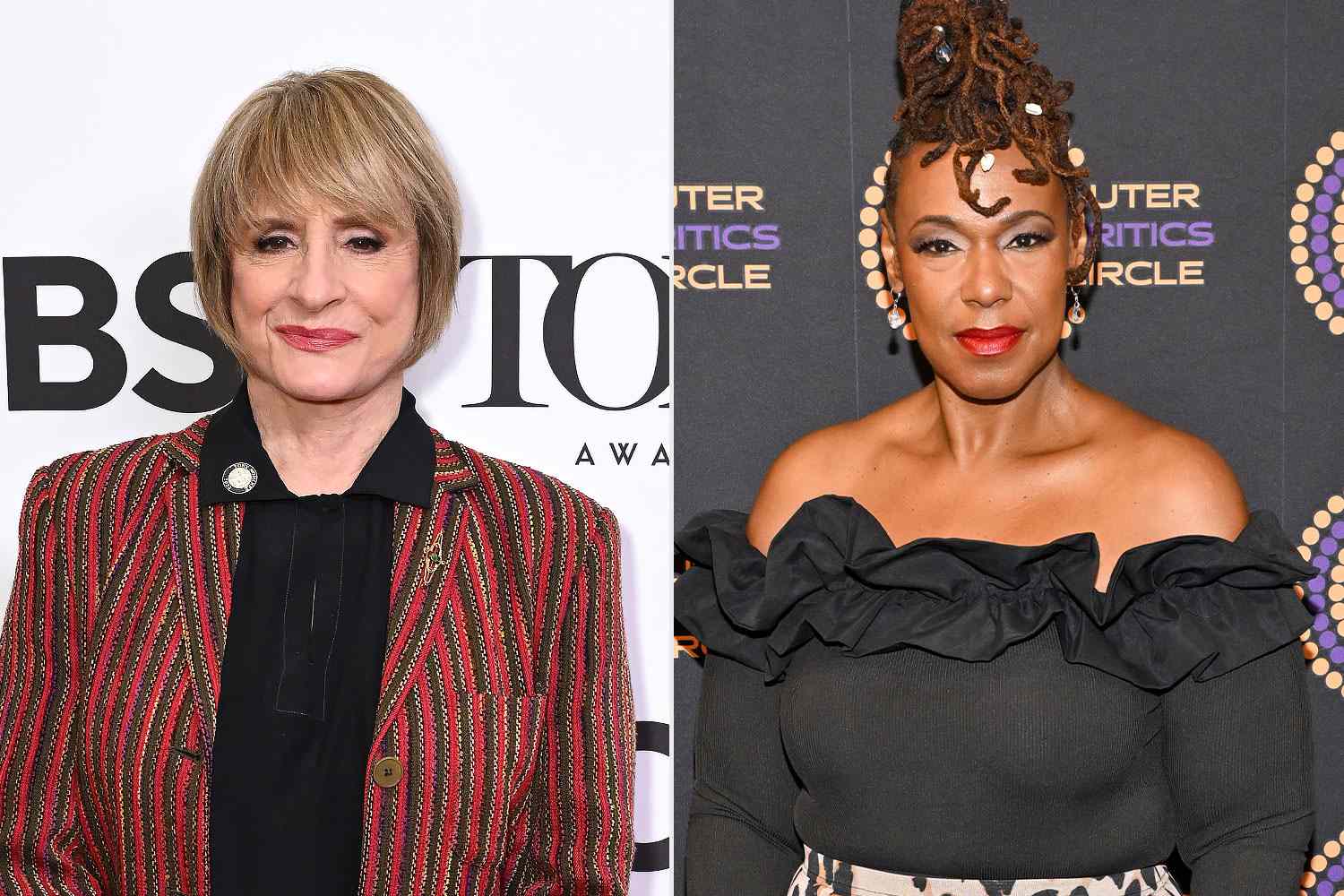Hell’s Kitchen star Kecia Lewis is speaking out after fellow Broadway star Patti LuPone went viral online for calling the musical “too loud.”
On Saturday, Nov. 2, Lewis, 59, shared a lengthy video on her Instagram account addressed to LuPone, 75, asking for her to apologize for the comments she made to a fan in a since-deleted video (which was viewed by PEOPLE) about Hell’s Kitchen‘s sound cues being too loud. In her open letter, Lewis called Lupone’s comments “offensive,” “racially microaggressive,” “rude” and “rooted in privilege.”
LuPone has yet to respond to the letter publicly. Representatives for LuPone and The Roommate did not immediately respond to PEOPLE’s request for comment.
“Miss LuPone, I want to make sure that you know that this letter is from me, not from the cast or crew or producers of Hell’s Kitchen. I am speaking for Kecia Lewis only,” Lewis began her letter.
The Tony winner then alleged that LuPone contacted the owner of the Shubert Theatre, where Hell’s Kitchen plays on Broadway, and asked the production to change several of its sound cues “because you found them to be too loud.”
LuPone is currently starring in The Roommate, which is playing directly next door to Hell’s Kitchen at the Booth Theatre.
“You also, after our sound design was adjusted, sent flowers to our sound and stage management team thanking them,” Lewis continued. “Another thing that I’m aware of is that you dismissed publicly signing a fan’s Hell’s Kitchen Playbill because — ‘I’m not signing a Hell’s Kitchen, they’re too loud.’ “
“I wanted to address this because this, Ms. LuPone, these actions in my opinion are bullying,” Lewis continued. “They’re offensive. They are racially microaggressive. They’re rude. They’re rooted in privilege and these actions also lack a sense of community and leadership for someone as yourself who has been in the business as long as you have.”
Lewis then went on to define the term microaggressions in her own words, calling them “subtle, unintentional comments or actions that convey stereotypes, biases or negative assumptions about someone based on their race.”
“Microaggressions can seem harmless or minor but can accumulate and cause significant stress or discomfort for the recipient. Examples include calling a Black show ‘loud’ in a way that dismisses it,” she continued.
Hell’s Kitchen, written by Alicia Keys, features a majority Black cast and tells a story inspired by Keys’ childhood growing up in New York City.
Jason Mendez/Getty
“In our industry, language holds power and shapes perception, often in ways that we may not immediately realize. Referring to predominantly Black Broadway show as ‘loud’ can unintentionally reinforce harmful stereotypes and it also feels dismissive of the artistry and the voices that are being celebrated on stage,” Lewis said.
“Comments like these can be seen as racial microaggressions, which have a real impact on artists and audiences,” she continued. “While gestures like sending thank you flowers may appear courteous, it was dismissive and out of touch, especially following a formal complaint that you made that resulted in the changes that impacted our entire production.”
The actress also said that she considers LuPone’s actions to be bullying because “bullying in a professional setting can include exerting influence to disrupt using one’s status or connections to cause unnecessary changes to someone else’s work environment, such as requesting sound adjustments.”
“Sending thank you flowers after impacting the production, can be perceived as disingenuous, particularly if it sidesteps meaningful dialogue or resolution,” Lewis said. “If your actions come across as undermining or attempting to assert control over a neighboring production, rather than collaborating respectfully, they can certainly be seen as crossing into bullying behavior, even if it’s unintentional. Recognizing and addressing this will help create a more respectful and supportive community.”
Julieta Cervantes
Lewis ended her video with her own thoughts on what the theater industry could learn in situations such as these, telling the Agatha All Alone star that she and other performers can ask themselves questions like: “How can I ensure that my feedback or my concerns are communicated in a way that is constructive and also, most importantly, respectful? How can I use my platform and experience to support diverse show teams promoting the idea that every production brings unique value to Broadway?”
“On Broadway, we are not just neighbors, Ms. LuPone. We are a community that shares in each other’s artistry and challenges. Respect and collaboration are what keep us thriving and inspire the next generation. It’s important that we support each other’s hard work on and off the stage,” Lewis finished in part. “Ms. LuPone, I respectfully submit to you that you owe us an apology, not flowers.”
Never miss a story — sign up for PEOPLE’s free daily newsletter to stay up-to-date on the best of what PEOPLE has to offer, from celebrity news to compelling human interest stories.
Many prominent Black Broadway actors, including Audra McDonald, the star of the upcoming Gypsy production, have spoken out to voice their support.
Underneath Lewis’ Instagram post, McDonald, 54, simply commented with a series of emojis, writing: “❤️❤️👏🏾👏🏾.”
Fellow Broadway actresses LaChanze and Angela Robinson also chimed in, writing respectively: “Well said my friend” and “The most eloquent letter. Wonderfully stated Kecia. Thank you for your advocacy.”
Read the full article here








